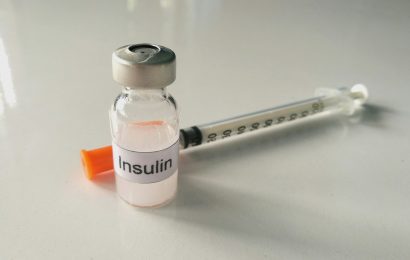What’s most important in your life with diabetes? Is it your glucose numbers? Your symptoms? Or is it the quality of your life: your happiness, your relationships, how you and feel?
Most people would say quality of life (QoL) is more important to them than lab values. But how much support do you ever get from health professionals with your quality-of-life issues?
Some professionals understand the importance of quality of life, if only in how it affects your physical health. Psychologist Richard Rubin PhD, CDE, says that diabetes can feel overwhelming. “[Feeling overwhelmed] leads to diminished self-care, which in turn leads to worsened glycemic control [and] increased risks for complications.”
He gave the example of depression, a sign of low quality of life that is very common in diabetes. Depression predicts health outcomes better than HbA1C or body-mass index.
What makes up your quality of life?
Quality of life is complicated and different for each person. Dr. Rubin says it is a combination of satisfaction with your life and happiness. Others would include functionality in their assessment.
Diabetes can impact your quality of life in many ways. Physical symptoms like fatigue or the pain of neuropathy are one way. Mental symptoms such as depression over lost health or fear of future complications are another.
Diabetes can take away things that make your life enjoyable, such as eating what you want, or driving, or sex. You may find yourself having less physical affection, including fewer hugs, if you don’t make contact a priority.
Relationships, finances, and work issues all affect quality of life and are affected by diabetes. And there are bigger issues, like: What am I doing with my life? How am I still contributing? Am I enjoying life any more?
One of the hardest pieces is the burden of diabetes management. William Polonsky PhD, CDE, Director of the Behavioral Diabetes Institute, says, “Many people become overwhelmed, frustrated, or ‘burned out,’ by the daily difficulties of diabetes and by the unending, often burdensome self-care demands, potentially leading to anger, guilt, depression, fear, feelings of hopelessness.” This condition is sometimes called “diabetes distress.”
Fear of complications, or having actual complications, puts major stress on your quality of life. Fear of death crops up from time to time when diabetes management is not going smoothly.
I’m hoping you will supplement this list with your own experiences in the comments. But what can you do about these trials? How can you maintain your quality of life with diabetes?
You can be happy with diabetes
There are several paths to a happy and satisfying life. Though diabetes can throw a lot of barriers in the way, it can’t stop you. You just have to keep jumping over the hurdles. Some strategies work for some people; others for other people.
• Find pleasure: Even if it’s just an occasional touch. Even if it’s just a couple of bites of a delicious fruit or quiche or something. Even if it’s just getting into bed after a day of doing rewarding things. Find exercise you enjoy. Do what makes you feel good, not just for a minute, but for hours. Pay attention to the good things and not just the hassles.
• Serve others: The best way to feel your life has meaning is helping other people. For this purpose, animals and plants are people, too. Helping others inevitably complicates your life, but in a good way. It brings you new relationships and opens you to experiences and people you wouldn’t meet otherwise. You get similar benefits by getting active for some cause that’s important to you.
• Simplify your diabetes management: Maybe sticking your fingers four or six times a day is getting to be a drag. Could you test less often? Or alternatively, get a continuous glucose monitor so you don’t have to stick at all?
Say you are on multiple medications for glucose control. Are there some you could stop or combine? If your medicines cause unpleasant side effects, can you ask your doctor to change or stop them?
You might be able to get off some medications completely and do better with diet changes such as going low carb, or with natural medicines such as bitter melon, vinegar, cinnamon, or okra.
• Find ways to get physical contact. Sex is good if you can get it, and sex means far more than penile/vaginal intercourse. But hugs, massage, even occasional touch all raise your quality of life.
• Do other things for your body: This includes movement, warm baths, self-massage. Have comfortable places to sit and lie down and comfortable clothes to move around in.
• Keep social contact: With diabetes, you may find yourself declining invitations you used to accept. Dr. Polonsky points out, “When patients are forced (or believe that they are forced) to limit or curtail their activities in order to manage their diabetes effectively, quality of life is likely to be affected. Examples include declining late-night social engagements as a means to avoid dietary lapses.”
If you have to say no to an invitation, see if you can come up with an alternative, maybe an alternative that involves movement.
• Meditation and prayer are often the best ways to come to terms with difficult changes in your life. You may find meaning in them; you may get creative ideas for adjusting.
There’s a lot more to quality of life — things like work, money, spirituality, your environment. I’ll come back to this in a couple of weeks, hopefully with some comments from readers to pass on.





